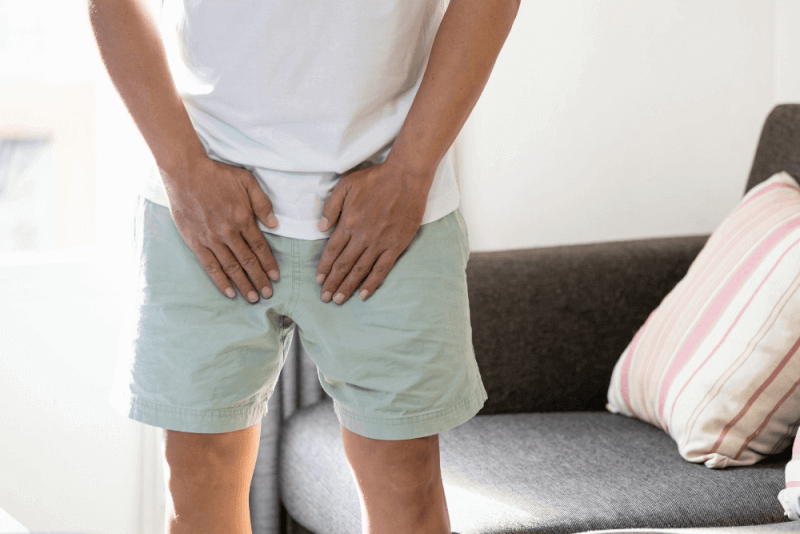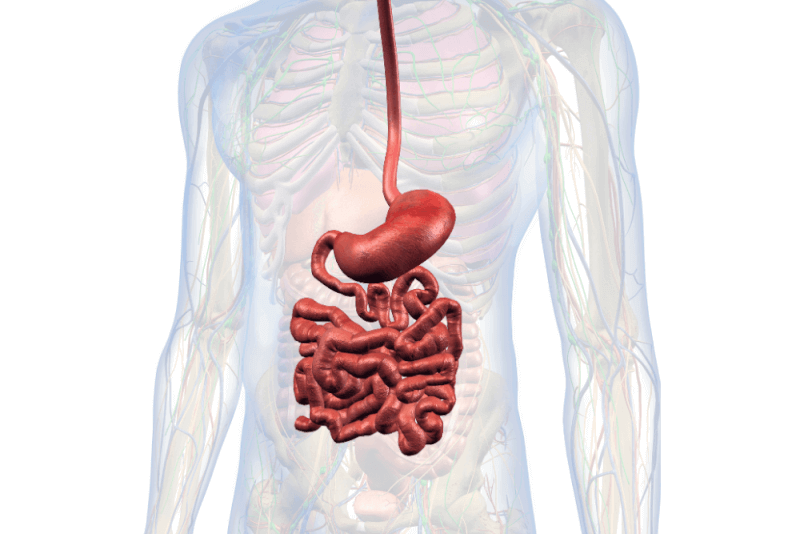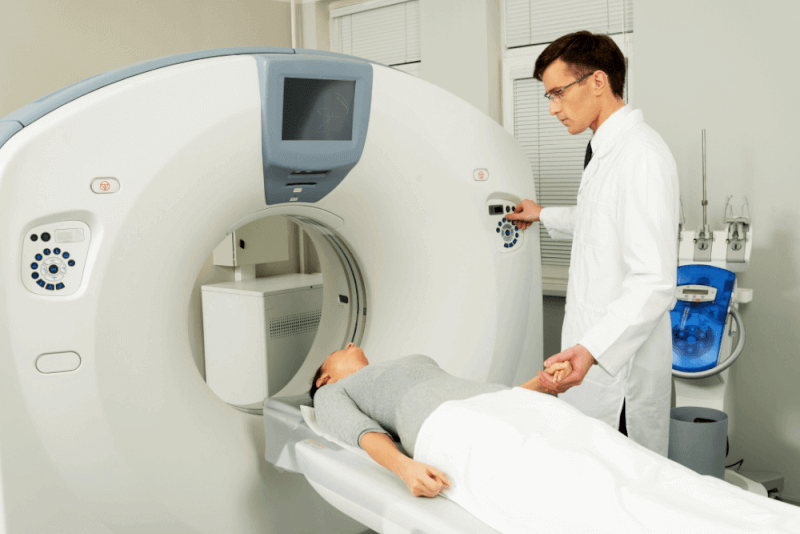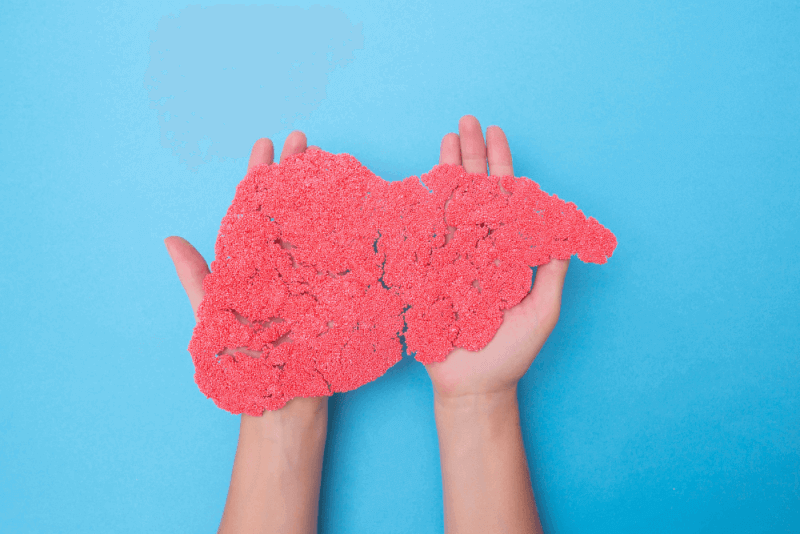Bile is an organ located below the liver and has a shape similar to a pear. The role of the gallbladder in the body is to collect bile produced in the liver. and then it ensures that this fluid is delivered to the intestines. It also helps the absorption of fats and fat-soluble vitamins. Gallbladder inflammation is usually caused by gallstones, but it can also occur in people without gallstones. Inflammation of the gallbladder caused by blockage of the septic tank is divided into two types. If gallbladder inflammation is not treated, the gallbladder shrinks and becomes unable to perform its functions. On the other hand, the constant secretion of bile also leads to increased exertion.
What is Gallbladder Inflammation?
Gallbladder inflammation occurs when the gallbladder is blocked by gallstones or other causes. Since gallbladder inflammation, which usually gives its first symptoms with abdominal pain, shows similar symptoms with other diseases, ultrasound imaging gains importance.
As a result of gallbladder inflammation, the gallbladder is constantly enlarged. Patients experience gas and bloating, especially after eating.
Symptoms of Gallbladder Inflammation
Symptoms of gallbladder inflammation are usually seen in patients after consuming too fatty foods. These foods cause nausea in patients. For this reason, approximately 80% of patients experience nausea or vomiting, as well as yellowing of the skin.
Symptoms of gallbladder inflammation can be seen in patients between 4 and 7 days. On the other hand, symptoms persist for months in some patients. In addition to these symptoms, symptoms that can be seen include increased pulse rate, gas in the abdomen and slime color in the stool.
The most characteristic symptom of gallbladder inflammation is pain. Pain in the abdomen can be felt in the back and right shoulder blade.
Causes of Gallbladder Inflammation
Gallbladder inflammation occurs for different reasons. The most common cause is obstruction caused by gallstones. The function of bile that accumulates in the gallbladder is to enable the digestive system to break down fats. However, if the gallbladder duct is blocked for any reason, fluid accumulates in the gallbladder and irritates the gallbladder wall. This irritation causes inflammation.
Tumor Formation
Tumors in the gallbladder can cause obstruction of the bile duct. Blockage of the duct triggers inflammation.
Injuries
As a result of injuries or blows to the gallbladder, the gallbladder may become twisted. This change in shape can lead to obstruction of the bile duct and naturally to inflammation of the gallbladder.
Infection
Insufficient blood supply to the gallbladder also causes gallbladder inflammation. For this reason, gallbladder inflammation is seen as a result of pregnancy, obesity, diabetes and sudden weight loss. In addition, AIDS or other viral infections play a role in triggering gallbladder inflammation.
Other Reasons
In addition, problems in the blood vessels that feed the gallbladder, liver diseases, intestinal diseases, stomach disorders, heart diseases, kidney diseases, menstruation, loss of appetite, cold, stress, fatigue and hysteria can also cause gallbladder inflammation.
Complications of Gallbladder Inflammation
- The accumulation of bile in the gallbladder causes the bile to become infected and thus causes gallbladder inflammation.
- If gallbladder inflammation is left untreated, the gallbladder tissue may die. This can cause the gallbladder to rupture or burst. This complication is especially common in diabetics, those who delay treatment and the elderly.
- Ruptures in the gallbladder can be caused by the death of gallbladder tissue or by swelling of the gallbladder.
How to Prevent Gallbladder Inflammation?
Fast to prevent gallbladder inflammation weight loss should be avoided in any way. Maintaining an ideal weight is also an important factor in the prevention of gallbladder inflammation as it prevents the formation of gallstones. Switching to a healthy diet also helps to reduce bile is an important step in the prevention of inflammation of the sac. In particular, it is necessary to abandon a diet that is high in fat and low in fiber.
How is gallbladder inflammation diagnosed?
In order to diagnose gallbladder inflammation, you must first inform your doctor about your complaints in detail. Your doctor will then use some blood tests and imaging to diagnose your gallbladder inflammation with certainty.
Blood Tests
Doctors ask for a blood test to see the level of infection in the blood. These tests are also important for the evaluation of liver function.
Imaging Methods
Ultrasound, endoscopic ultrasound or CT scanning can be performed to visualize whether there is any stone formation in the gallbladder.
Screening to Show the Course of Bile in the Body
The HIDA scan is a scan that shows the progression of bile through the bile duct. For this, a radioactive dye is injected into the bile-producing cells and the flow of bile can be monitored.
Gallbladder Inflammation Treatment
Different treatment methods are used in the treatment of gallbladder inflammation. Some of these methods are applied to the factors that cause inflammation of the gallbladder.
Fasting
Fasting is recommended to reduce the stress on the gallbladder caused by gallbladder inflammation. This period, during which patients temporarily do not eat or drink, is called temporary fasting.
Serum
By giving fluid to patients through intravenous fluids, patients are prevented from experiencing fluid loss due to gallbladder inflammation.
Antibiotics
Antibiotic therapy is a treatment used to relieve the symptoms of gallbladder inflammation. In addition to antibiotics, patients are also given painkillers and fluids during treatment. Unfortunately, there is no treatment in modern medicine to prevent recurrence of gallbladder inflammation.
Removal of Gallbladder Obstructing Meat
Removal of tumors or stones that block the bile duct is also an important part of the treatment of gallbladder inflammation. However, especially gallstones may recur after these operations.
Inflammation of the gallbladder can cause sepsis. In this case, patients should be admitted to intensive care immediately.
Gallbladder Removal
Surgical operations to remove the gallbladder are the only method that ensures that gallbladder inflammation is treated definitively and does not recur later. Thanks to advanced methods in today’s medicine, the gallbladder can be removed with a few small incisions.







